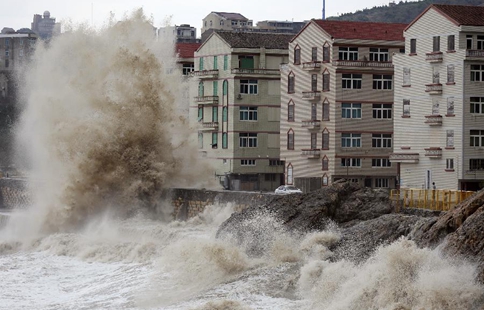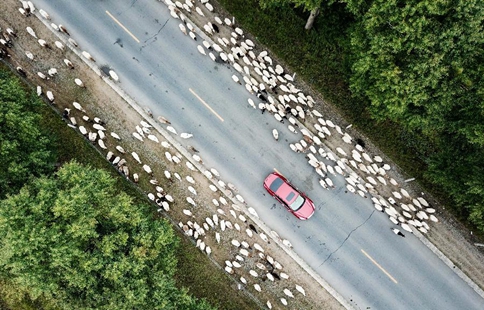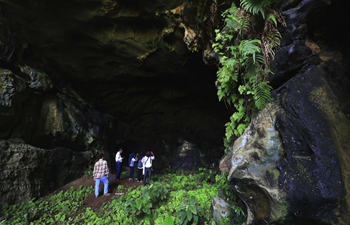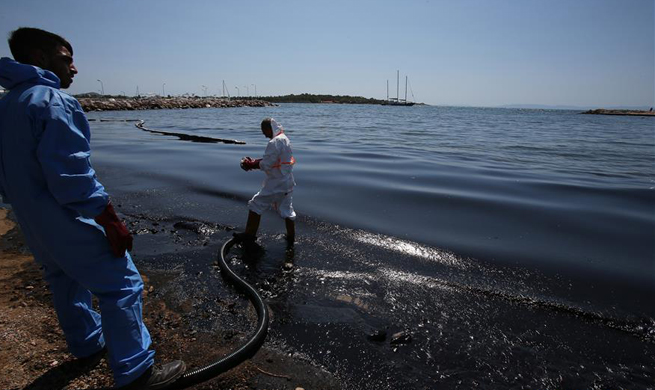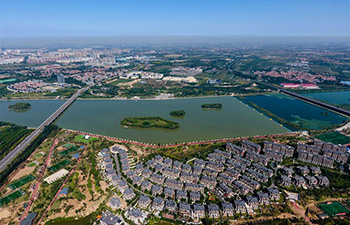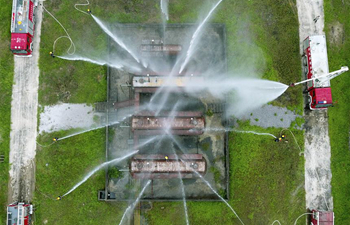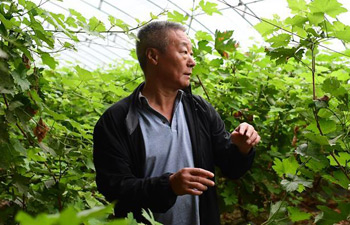SYDNEY, Sept. 15 (Xinhua) -- A leading Australian expert warned on Friday that more needs to be done to address the potential damage being done by humans to the microbial ecology as microorganisms are critical to our survival on the planet.
Michael Gillings, a professor of the department of biological sciences at Macquarie University in Sydney, believed there are "millions of species that we should not ignore" and these tiny, almost invisible creatures are responsible for much of the biogeochemistry of the globe.
"This is the cycling of nutrients, and things that we depend on. And all of the things we think of as making up our bodies - carbon, nitrogen, phosphorus, sulphur, oxygen - all of these things microbes have a major role in cycling those through ecosystems," Gillings told Xinhua.
The problem, Gillings said, stems from the fact that not enough emphasis has been placed on the potential damage that has been caused by human interference to these fragile ecosystems, which he says are far more crucial to our survival than any other animal.
"So they are the organisms that we can see, and we know that humans have affected those large organisms, and when we do that it damages ecosystems. Microorganisms are much more important than those big organisms that we care about so deeply," Gillings said.
"None of us want pandas to go extinct, but if pandas did go extinct - it wouldn't really affect life on the planet. On the other hand, if some microorganisms went extinct, or stopped working as well as they do - we could be in very, very serious trouble straight away."
The esteemed professor stressed that one of the main ways humans have affected the delicate microorganism environment is through a way that many people would not even think of - ballast water.
Ballast water is the water carried by large ships in order to remain stable as they sail, and Gillings said that the way this process operates not only affects the microbial systems, but also has a detrimental effect on human health in general.
"So there is a hundred million tonnes of ballast water dumped just in U.S. ports every year. That ballast water is picked up somewhere else in the world, and transported from there to where you dump it off." Gillings said.
This has led to cholera outbreaks in the past, but what has not been looked at enough, according to Gillings, is the consequential effect such practices have on things besides humans.
"There's also microorganisms being transported around, whose effects we don't know about yet, that are causing diseases of native animals, that are causing diseases of native plants, that are disturbing the microbial populations at their end destinations." Gillings said.
Gillings said there needs to be more of a focus on the spread of these "invisible" bacteria to new places, with many simply ignoring the potential dangers that they pose as they simply "can't see them," but the definitive solution to this ongoing problem is one which has yet escaped his grasp.
"The solutions to the problem I don't know what they are going to be - but, this could be a really big problem, and we should be thinking about it, and ways of testing what is happening." Gillings said.
To do this, Gillings said that he believes the best way forward would be to draw from the scientific knowledge of a number of related disciplines - geoscience, atmospherics, microbial ecology, and others - to then forge ahead under a banner of what is, in essence, a fusion of a new frontier science.
"All of those groups have to come together to fuse what would really be a new scientific discipline - which is kind of a holistic view of microbial process in ecosystems," Gillings said.
"Not only do we not know what things are doing, we don't even know what is out there to start with. And so, the collection of new genomes, exploring what's called microbial dark matter is a first step in understanding what we are doing to the microbial world."




